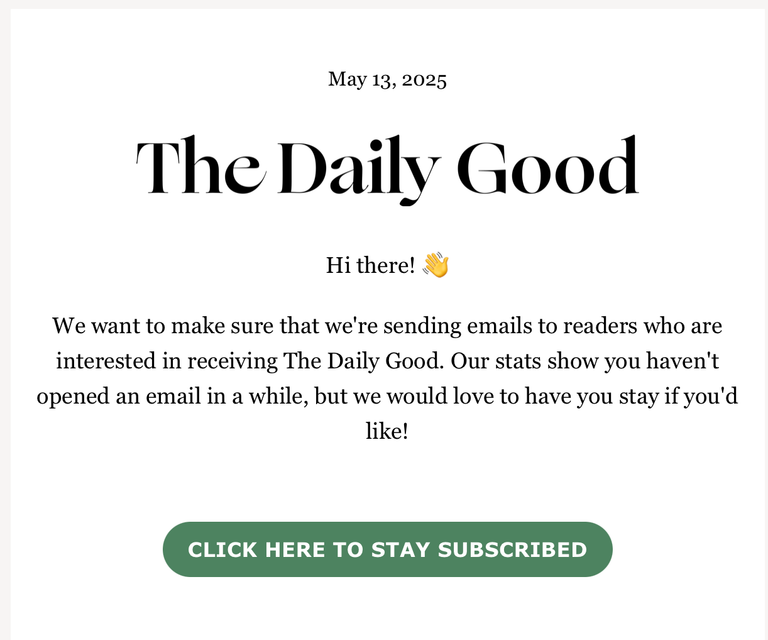The Email You Opened Is Watching You
Just a reminder… you are being tracked.

I’ve said it before (here) but it bears repeating: ever since email switched from plain text to HTML (which was a while ago), it’s been used to track us. This was always true to some extent, but especially in recent years as email apps have become more powerful and better able to run small trackers, this kind of thing has really exploded.
What do they track? When you open the email, how many times you open it, any links you click, your IP address (which is used to get an idea of where you live, or at least where you opened the email), your device info (OS, app, etc), even whether you forward it.
Now 99% of the time, this info just gets skimmed once by an unpaid intern trying to improve the open rate and then it sits in a database never to be seen again. But do you really want your digital behavior sitting in a database somewhere?
Do a Google search for “email trackers” and you’ll find loads of services trying to sell you tools to spy on your own mailing list. It’s that pervasive.
Just today I got the following email:

They’re not even pretending to be subtle.
“Our stats show you haven’t opened an email in a while.”
I’m tempted to unsubscribe out of spite. But I’ve sold them writing before, so I like to stay vaguely aware of what they’re doing.
There is, however, a secret weapon. This email from them proves it, because I do open their messages — but they don’t know that. Why? Because I block their tracker:

How to Block Email Trackers
The simplest way to do this is DuckDuckGo Email Protection. You can sign up here.
They’ll give you a new email address — [email protected] — and this new address will:
- Strip out all trackers.
- Forward the email to your real inbox.
You can also generate random aliases for every service you use, all forwarding to your actual inbox. That’s what I do. Every newsletter, every app, every site gets a different email.
That’s not as tedious to do as you might think. If you install the DuckDuckGo browser extension, creating those aliases becomes a one-click thing. Not hard at all. (Again, see my previous post. I give more details on using this extention there.)
Other services like Apple and Protonmail offer similar protection, but they charge for it. DuckDuckGo is free (at least for now), which makes it the easiest path to reclaiming some privacy.

If you want more details, check out my previous post for more of a walkthru, or skip it and sign up for DuckDuckGo now. You’ll figure it out.
Just remember: nearly every email newsletter or marketing message is watching you. If you’re not okay with that, you can do something about it.
❦
 |
David is an American teacher and translator lost in Japan, trying to capture the beauty of this country one photo at a time and searching for the perfect haiku. He blogs here and at laspina.org. Write him on Bluesky. |
Creepy but true... !BBH !PIZZA !LOLZ
lolztoken.com
I guess I’m bio-D-grade-able
Credit: reddit
@dbooster, I sent you an $LOLZ on behalf of day1001
(2/10)
NEW: Join LOLZ's Daily Earn and Burn Contest and win $LOLZ
$PIZZA slices delivered:
@day1001(2/10) tipped @dbooster
Come get MOONed!
I have a Proton mail account. I waited for them to have a deal on the service and I tied it to my domain that I own. I hardly ever use it, so I am not sure if I will renew it, but I really like what it has to offer so far. I really need to use it more. I also need to check out the duck duck go service that you have mentioned in the past.
I love DuckDuckGo email. I used to use protonmail but the privacy of DuckDuckGo is so much better. I hate trackers, and block them too. I'm sick and tired of these companies gathering info on me to store in their databases indefinitely or sell it off when someone offers them enough cash. Glad to hear I'm not alone!
!PIMP
Hi @dbooster, My son has installed some privacy protectors on my desktop: Ghostery, Privacy Badger, and Ublock. Do these offer anti-tracking protection?